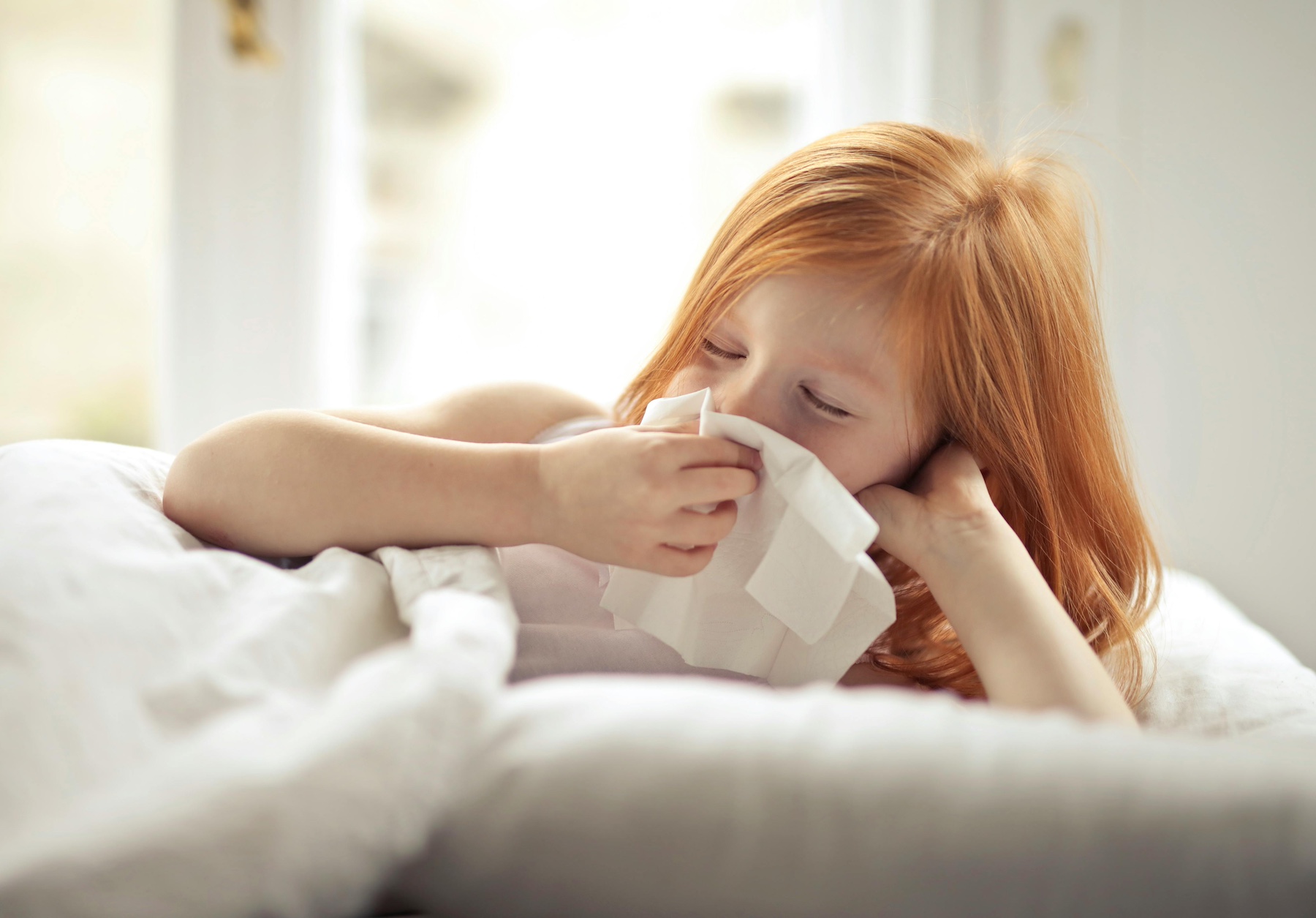Effective Allergy Treatment and Management Tactics
Spring is here, and it’s bringing plenty of pollen along with it. Seasonal allergies aren’t just something that adults deal with, they can affect children as well with many of the same symptoms. Allergy symptoms in children can impact their mood, sleep schedule, and overall well-being. As a parent, witnessing your child suffer from sneezing, itching, and congestion can be distressing. However, there are several strategies you can employ to help alleviate their symptoms and provide much-needed relief!
Here are some effective ways to treat seasonal allergies in children:
1. Identify Allergy Triggers:
Understanding what triggers your child’s allergies is crucial in managing their symptoms effectively. Common triggers include pollen from trees, grasses, and weeds, as well as mold spores, dust mites, and pet dander. Keep track of when your child’s symptoms worsen and try to correlate them with environmental factors. You can do this easily by keeping a running note on your phone of each time the allergies flare up. Tracking details like this helps take the guesswork out of identifying triggers and can make it easier to find a pattern.
2. Limit Allergen Exposure:
Once you’ve identified the allergens, take steps to minimize your child’s exposure to them.
- If there is a pollen allergy, keep windows closed during peak pollen times.
- If there is a dust allergy, use air purifiers with HEPA filters in your home and wipe surfaces down regularly to prevent dust from accumulating,
- If there’s mold or mildew in the home, you can try and keep things sanitized yourself, but it’s often best to look into professional remediation services so that you can be certain the issue is under control.
Make sure that you’re also taking steps to allergy-proof the most high-traffic rooms in the house, too! Staying inside on heavy pollen days is only helpful if the indoors has fewer allergens than the outdoors do.
3. Allergy-Proof the Bedroom:
Since children spend a significant amount of time in their bedrooms, it’s essential to make this space as allergy-friendly as possible. Use hypoallergenic bedding and pillowcases when possible, wash bedding weekly, and consider installing allergen-proof covers on mattresses and pillows. Vacuum regularly to get dust and dander up out of the carpet. Pollen and dust can hide in the window well and sill, so be sure to dust and wipe down these areas regularly, too!
4. Nasal Irrigation:
Nasal irrigation can help clear out allergens and mucus from your child’s nasal passages, providing relief from congestion and sneezing. Use a saline solution or a nasal saline spray to rinse out their sinuses regularly, especially after spending time outdoors.
5. Over-the-Counter Allergy Medications for Kids:
There are several over-the-counter medications available to treat seasonal allergies in children, including antihistamines, decongestants, and nasal corticosteroids. However, always consult with your child’s pediatrician before starting any new medication to ensure it’s safe and appropriate for their age and medical history.
6. Prescription Allergy Medications for Kids:
In some cases, over-the-counter medications may not provide adequate relief for severe allergy symptoms. Your child’s doctor may prescribe stronger medications, such as oral antihistamines or nasal corticosteroids, to help manage their symptoms more effectively. If you’re located in Twin Falls, Idaho and you’re looking for a children’s allergy doctor, give Frontier Pediatric Partners a call. We’re here to help get your child’s symptoms under control!
7. Allergy Shots (Immunotherapy):
Allergy shots, also known as immunotherapy, can be an effective long-term treatment for children with severe allergies that don’t respond well to other treatments. This therapy involves regular injections of small amounts of allergens to desensitize the immune system over time. For serious allergic reactions, this treatment often involves exposure to an allergen followed by an hour or more of observation time in the allergy clinic to ensure there is no severe reaction. Immunotherapy for kids can be started by an Allergy Specialist who may then refer you to your regular pediatrician for follow-up appointments and injections. However, every doctor is different and some Allergists may require you to come to their office for every appointment.
8. Encourage Healthy Habits:
A healthy lifestyle can help boost your child’s immune system and reduce the severity of their allergy symptoms. Encourage them to eat a balanced diet rich in fruits, vegetables, and whole grains. It’s important to get regular exercise, even for kids, and the best way to encourage this behavior is to model it! Get active with your children through playing, bicycling, going for walks, swimming, hiking, or whatever other activities you can enjoy together! This will help them develop a lifelong passion for staying active. Finally, encourage them to maintain good hygiene practices, such as washing their hands frequently to limit allergen exposure.
9. Schedule a Pediatrician Visit:
If your child’s allergy symptoms are severe or persistent despite your best efforts, don’t hesitate to seek professional help. A pediatric allergist can conduct allergy testing to identify specific triggers and develop a personalized treatment plan tailored to your child’s needs.
Find a Children’s Allergy Doctor in Twin Falls
In conclusion, while seasonal allergies can be challenging to manage, there are numerous strategies you can employ to help alleviate your child’s symptoms and improve their quality of life. By identifying triggers, minimizing exposure, using medications as needed, and seeking professional advice when necessary, you can help your child breathe easier and enjoy the wonders of the changing seasons without the burden of allergy symptoms.
Frontier Pediatric Partners is here to support you and your child on their allergy journey. Our doctors can help identify allergy triggers, recommend non-prescription medications, advise on therapies, and write anti-allergy prescriptions if needed.



